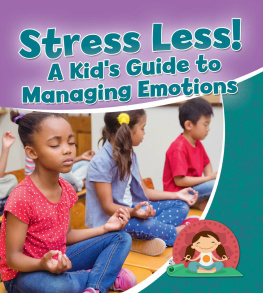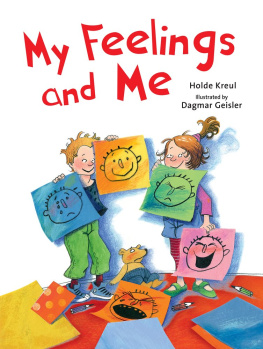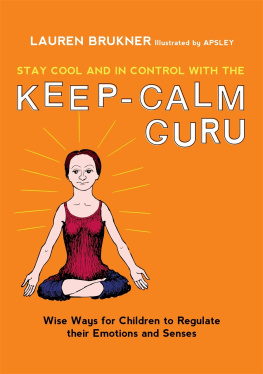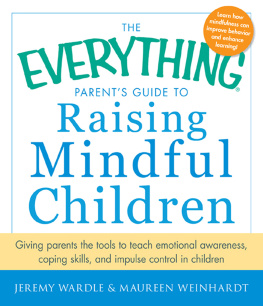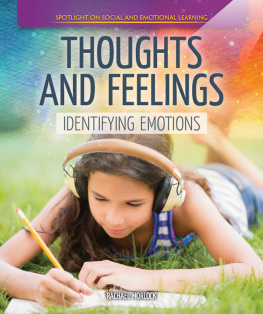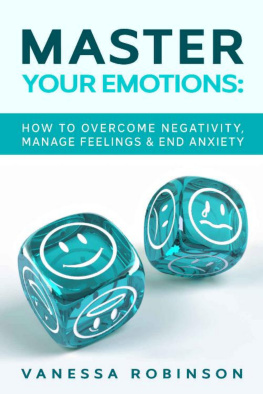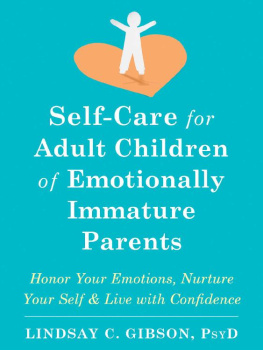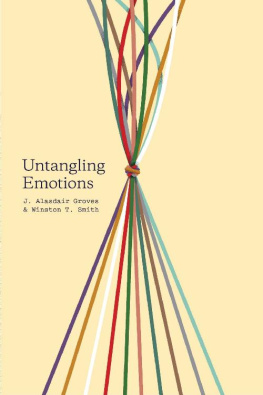Title page
Exploring Emotions
Ros Bayley
Copyright page
Published by Practical Pre-School Books, A Division of MA Education Ltd, St Judes Church, Dulwich Road, Herne Hill, London, SE24 0PB
Tel: 020 7738 5454
www.practicalpreschoolbooks.com
2012 digital version by Andrews UK Limited
www.andrewsuk.com
MA Education Ltd 2004
Illustrations: Cathy Hughes
All rights reserved. No part of this publication may be reproduced, stored in a retrieval system, or transmitted by any means, electronic, mechanical, photocopied or otherwise, without the prior permission of the publisher.
Promoting emotional intelligence
Emotional intelligence may be even more important for children than academic achievement. If this is the case, it is really important that those who care for and educate children have a thorough understanding of what it is and how we can help children to develop it
The term emotional intelligence was coined by two US psychologists, Peter Salovey and John Mayer. Put simply, an emotionally intelligent person:
- Is able to understand, express and manage their emotions
- Can read and understand the emotions of others
- Responds well to others and has the ability to get on with a wide range of people
- Has positive self-esteem and self-image
- Is comfortable with who they are
- Is usually easy to talk to
- Shows empathy for others
- Works well as part of a group
- Is optimistic and confident
- Has the emotional strength to deal with the ups and downs of daily life
- Has good interpersonal skills
- Sorts out problems in an assertive rather than an aggressive way
- Can think reflectively and make links between their actions and their emotions
They are also able to delay their gratification, and this is important when you think how many things in life require hard work and determination. The fact that something may be worth waiting for does not mean that everyone can do it, but this is one of the key qualities that characterises an emotionally intelligent person.
The more we learn about how the brain works, the more we begin to realise that effective learning depends on emotional energy.
The secret of success
Looked at in this way you can begin to see why these qualities are fundamental to success both at school and in life in general. In fact, academic achievement without emotional intelligence is not much use to anyone! Most of us know people who have achieved highly academically but are completely incapable of sorting out simple problems in daily life!
Daniel Goleman, who has spent many years researching emotional intelligence, says: People who cannot marshal some control over their emotional life fight inner battles that sabotage their ability for focused work and clear thought.
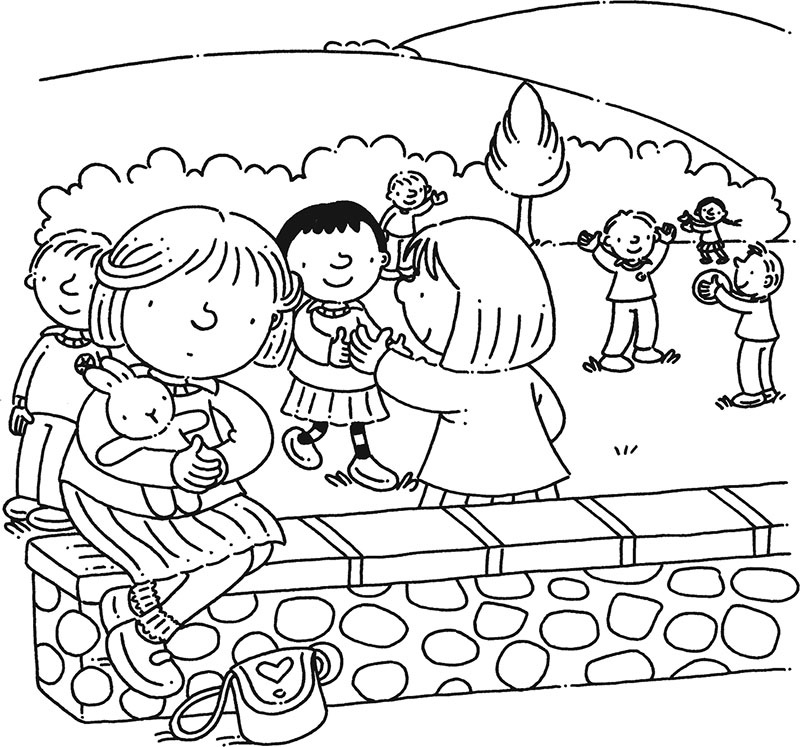
Mind over matter?
The more we learn about how the brain works, the more we begin to realise that effective learning depends on emotional energy. As human beings, we are driven more by emotion than logic - it all depends on how we feel and how well we can manage those feelings.
In evolutionary terms, there was an emotional brain long before there was a rational one and this has had a profound effect on the way we function. Think for a moment about the last time you were full of feeling. Maybe you were angry or upset about something, and the more intense these feelings became, the harder it became to think rationally. In such situations, our emotional brain overpowers our thinking brain, making rational thought difficult, and this is when we often do things that we later regret.
However, the higher our level of emotional intelligence, the greater our capacity for dealing with such situations. Emotional intelligence enables us to function more effectively under stress and helps us not to lose our heads, and even when we do respond in a way that we later regret, we are much more likely to be able to sort our way out of the difficulties we find ourselves in.
Can it be taught?
Nobody can be emotionally intelligent all of the time. Our emotional state is constantly changing in response to the various situations in which we find ourselves, but in the light of what we know, two questions seem paramount: Is it possible to teach children to be more emotionally intelligent, and if it is, will this improve their learning and help them to be more successful in life? I think that the answer to both of these questions is a resounding yes and would like to offer some suggestions for how this might be achieved in some key areas.
Understanding emotions
- Acknowledge and talk about childrens feelings. This will help them to become increasingly able to identify and describe how they feel and lead to greater self-awareness.
- Value all of a childs emotions, including those that may be viewed as negative. Remember, all feelings are real for the person who is feeling them, and you can acknowledge someones feelings without needing to agree with them!
- Be prepared to spend time with a child when they are sad, angry or fearful and try not to become impatient with the emotion.
- Respect the childs emotions and try not to make light of their negative feelings.
- Do not feel that you have to sort out every problem for a child.
Managing emotions
- Try to avoid telling children how you think they should feel.
- Listen with attention and empathise with how children are feeling.
- Offer guidance on how to regulate emotions, set limits, and help children to learn how to express emotions in a way that does not hurt others.
- Encourage them to think reflectively and learn from their mistakes.
- Provide a safe place where children can go when things get too much.
Self motivation
- Give children choices, encourage them to take on appropriate responsibilities and show confidence in their ability to succeed.
- Recognise and celebrate childrens achievements.
- Make learning activities fun, varied and relevant.
- Help children to set targets for themselves. Discuss their aspirations with them and encourage them to aim high.
- Offer support when things go wrong and help children to see that making mistakes offers a valuable opportunity for learning.
- Consult with children about how things should happen and encourage them to offer their ideas. Help them to see that they can influence how things turn out.
- Create a culture where it is acceptable to take risks.
Understanding emotions in others
- Describe feelings when children are unkind or hurtful and make the most of disagreements, fights and conflicts as a vehicle for exploring emotions.
- Talk about the feelings of the characters you read about in stories or see on television or video.
- Encourage children to help others who are emotionally distressed.
- Teach them how to resolve conflicts, and help them to understand that we can disagree with someone and still like and respect them.
- Model emotionally intelligent behaviour.
When we have emotional intelligence we have the resilience to cope with whatever life throws at us.
Learning about relationships
- Play cooperative games and provide opportunities for children to work cooperatively.
- Help children to understand that when they are working as part of a group they have a personal responsibility to that group.
- Encourage them to understand that people who work well together are able to achieve more than people who do not.
- Model emotionally intelligent behaviour through your relationships with the children.
Next page


